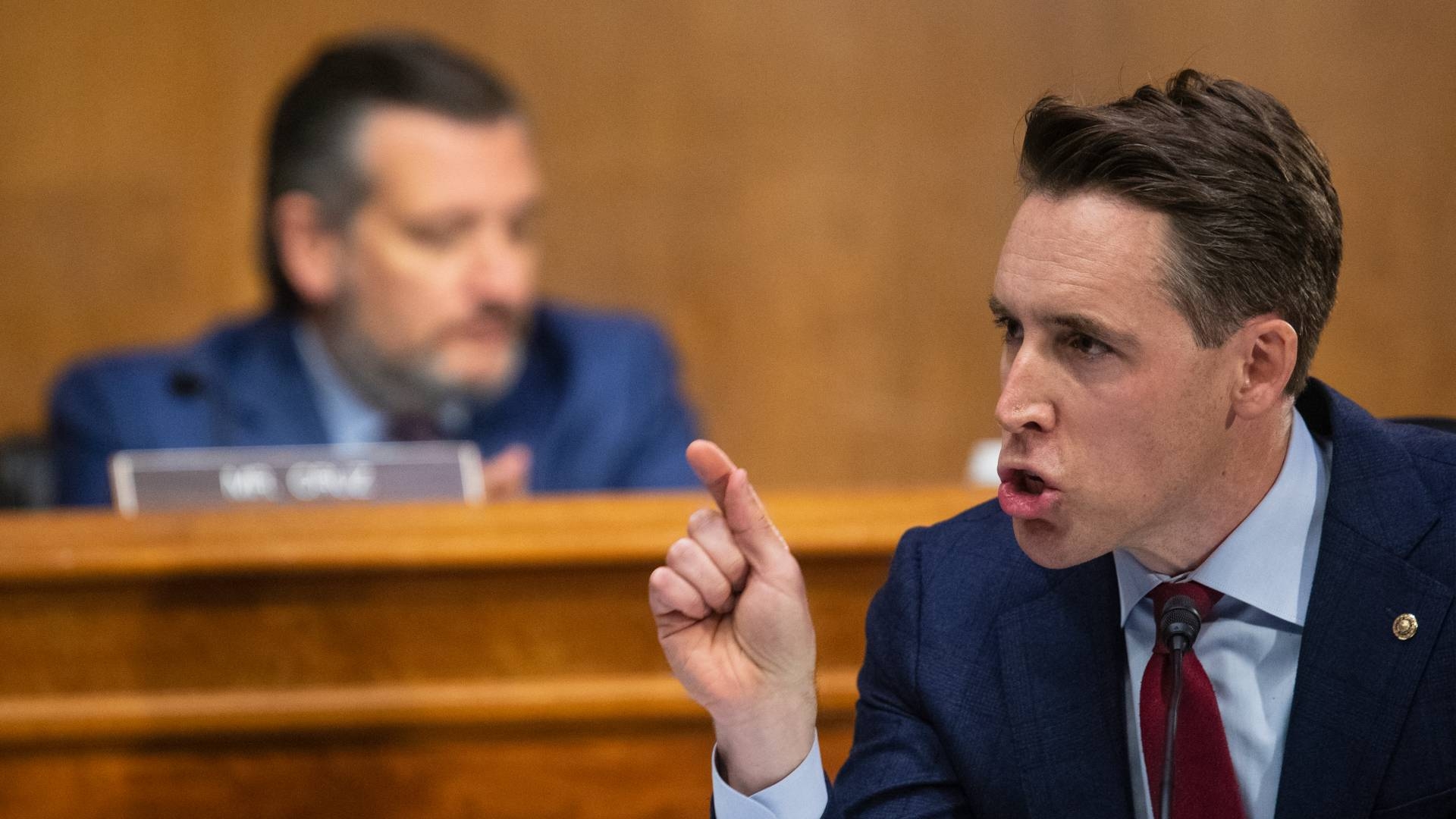US: Republican senator blocks Biden's choice for top Israel diplomat

Republican Senator Josh Hawley has blocked an attempt to approve a slew of nominations to key ambassador positions, including US President Joe Biden's nominee for ambassador to Israel, Tom Nides, after an attempt to confirm them by unanimous consent.
The Missouri lawmaker said he objected to Nides and seven other nominees on behalf of his Republican colleagues - including ambassadors to Nato and the Organisation for Security and Cooperation in Europe - that were pushed through by Senator Bob Menendez.
New MEE newsletter: Jerusalem Dispatch
Sign up to get the latest insights and analysis on Israel-Palestine, alongside Turkey Unpacked and other MEE newsletters
Because of the objection, Democratic leadership will now have to go through a more formal process of holding floor debates and scheduling a vote on the nominations. With Congress largely focused on Biden's infrastructure and defence policy bills, the process could drag on for months.
Menendez, who serves as chair of the Senate Foreign Relations Committee, lambasted the move and said it shows a contradiction amongst lawmakers who claim they support the US ally.
"So we will have no ambassador in Israel, as we deal with the challenges of Iran and others in the region," a visibly frustrated Menendez said following Hawley's objection.
"It is mind-boggling, all of those who get up here and talk about our ally the State of Israel, the importance of the state of Israel, but we won't have an ambassador there to help us meet the challenges that Israel has."
The continued vacancy at the US embassy in Jerusalem became an issue for the Biden administration, which sent Michael Ratney to serve as interim head of the embassy after Israel's offensive on Gaza in May.
Ratney had previously headed the US consulate in Jerusalem from 2012 to 2015, which had served as the de-facto representative for Palestinians before being shuttered by the previous US president, Donald Trump.
Opposing US consulate in Jerusalem
Hawley did not specify what his objections were to Nides in announcing his opposition, simply noting he was doing it on behalf of his Republican colleagues.
"Multiple of my colleagues have objections to all of the nominees, so I will be here to object on their behalf and also on my own behalf with regard to a few of them," he said.
The move, however, comes amid a unified Republican effort to oppose the reopening of the US Consulate in Jerusalem, which would serve Palestinians. The move was first seen as a relatively mild policy, but after several months, it has turned into a divisive issue with Israeli officials being vehemently opposed to it.
On Monday, 200 Republican members of Congress sent a letter to the White House opposing the president's plans to reopen the consulate that served Palestinians.
Biden first nominated Nides, currently vice-chairman at the investment banking firm Morgan Stanley, to be the next ambassador to Israel in June.
In September, he affirmed his support for the reopening of the consulate, saying he believed "it will have no impact on the capital of Israel being Jerusalem".
So far, only five of the administration's nominees have been approved by the Senate. Under the previous Donald Trump administration, 32 nominees were appointed within the same timeline.
Middle East Eye delivers independent and unrivalled coverage and analysis of the Middle East, North Africa and beyond. To learn more about republishing this content and the associated fees, please fill out this form. More about MEE can be found here.





